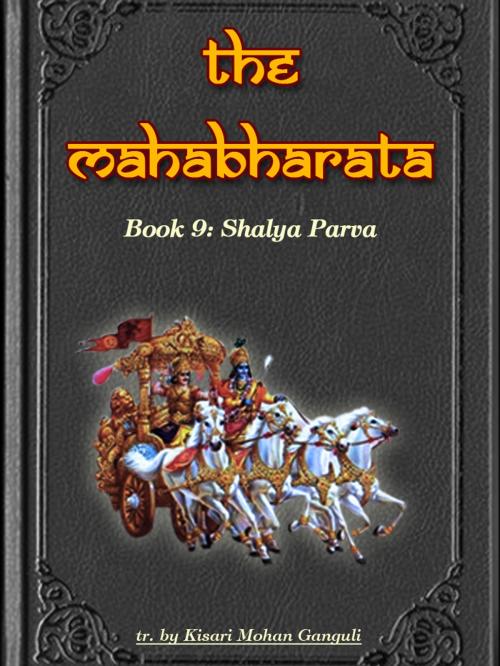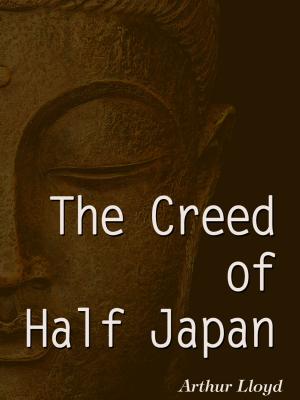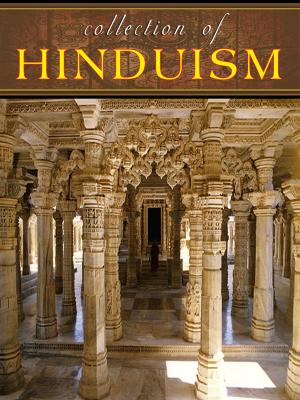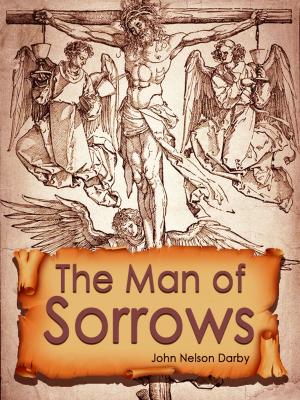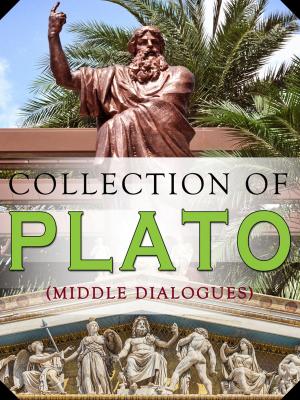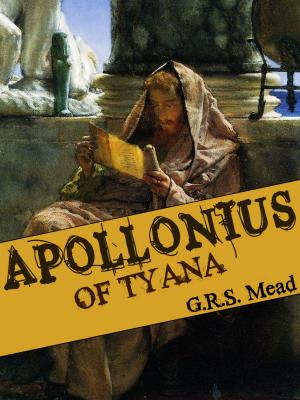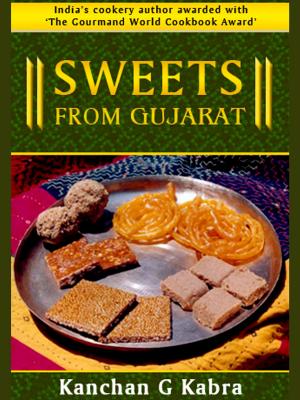The Mahabharata, Book 9: Shalya Parva
Nonfiction, Religion & Spirituality, Eastern Religions, Hinduism, Inspiration & Meditation, Spirituality, History| Author: | Kisari Mohan Ganguli | ISBN: | 1230000036150 |
| Publisher: | AppsPublisher | Publication: | December 3, 2012 |
| Imprint: | Language: | English |
| Author: | Kisari Mohan Ganguli |
| ISBN: | 1230000036150 |
| Publisher: | AppsPublisher |
| Publication: | December 3, 2012 |
| Imprint: | |
| Language: | English |
The Mahabharata, Book 9: Shalya Parva
Kisari Mohan Ganguli, tr.
Om! Having bowed down to Narayana, and Nara the foremost of male beings, and the goddess Saraswati also, must the word Jaya be uttered.
It is of immense importance to the culture of the Indian subcontinent, and is a major text of Hinduism. Its discussion of human goals (artha or purpose, kama or pleasure, dharma or duty/harmony, and moksha or liberation) takes place in a long-standing tradition, attempting to explain the relationship of the individual to society and the world (the nature of the 'Self') and the workings of karma.
The object of a translator should ever be to hold the mirror upto his author. That being so, his chief duty is to represent so far as practicable the manner in which his author's ideas have been expressed, retaining if possible at the sacrifice of idiom and taste all the peculiarities of his author's imagery and of language as well. In regard to translations from the Sanskrit, nothing is easier than to dish up Hindu ideas, so as to make them agreeable to English taste. But the endeavour of the present translator has been to give in the following pages as literal a rendering as possible of the great work of Vyasa. To the purely English reader there is much in the following pages that will strike as ridiculous. Those unacquainted with any language but their own are generally very exclusive in matters of taste. Having no knowledge of models other than what they meet with in their own tongue, the standard they have formed of purity and taste in composition must necessarily be a narrow one. The translator, however, would ill-discharge his duty, if for the sake of avoiding ridicule, he sacrificed fidelity to the original. He must represent his author as he is, not as he should be to please the narrow taste of those entirely unacquainted with him. Mr. Pickford, in the preface to his English translation of the Mahavira Charita, ably defends a close adherence to the original even at the sacrifice of idiom and taste against the claims of what has been called 'Free Translation,' which means dressing the author in an outlandish garb to please those to whom he is introduced.
Janamejaya said, "After Karna had thus been slain in battle by Savyasaci, what did the small (unslaughtered) remnant of the Kauravas do, O regenerate one? Beholding the army of the Pandavas swelling with might and energy, what behaviour did the Kuru prince Suyodhana adopt towards the Pandavas, thinking it suitable to the hour? I desire to hear all this. Tell me, O foremost of regenerate ones, I am never satiated with listening to the grand feats of my ancestors."
Vaishampayana said, "After the fall of Karna, O king, Dhritarashtra's son Suyodhana was plunged deep into an ocean of grief and saw despair on every side. Indulging in incessant lamentations, saying, 'Alas, oh Karna! Alas, oh Karna!' he proceeded with great difficulty to his camp, accompanied by the unslaughtered remnant of the kings on his side. Thinking of the slaughter of the Suta's son, he could not obtain peace of mind, though comforted by those kings with excellent reasons inculcated by the scriptures. Regarding destiny and necessity to be all-powerful, the Kuru king firmly resolved on battle. Having duly made Shalya the generalissimo of his forces, that bull among kings, O monarch, proceeded for battle, accompanied by that unslaughtered remnant of his forces.
The Mahabharata, Book 9: Shalya Parva
Kisari Mohan Ganguli, tr.
Om! Having bowed down to Narayana, and Nara the foremost of male beings, and the goddess Saraswati also, must the word Jaya be uttered.
It is of immense importance to the culture of the Indian subcontinent, and is a major text of Hinduism. Its discussion of human goals (artha or purpose, kama or pleasure, dharma or duty/harmony, and moksha or liberation) takes place in a long-standing tradition, attempting to explain the relationship of the individual to society and the world (the nature of the 'Self') and the workings of karma.
The object of a translator should ever be to hold the mirror upto his author. That being so, his chief duty is to represent so far as practicable the manner in which his author's ideas have been expressed, retaining if possible at the sacrifice of idiom and taste all the peculiarities of his author's imagery and of language as well. In regard to translations from the Sanskrit, nothing is easier than to dish up Hindu ideas, so as to make them agreeable to English taste. But the endeavour of the present translator has been to give in the following pages as literal a rendering as possible of the great work of Vyasa. To the purely English reader there is much in the following pages that will strike as ridiculous. Those unacquainted with any language but their own are generally very exclusive in matters of taste. Having no knowledge of models other than what they meet with in their own tongue, the standard they have formed of purity and taste in composition must necessarily be a narrow one. The translator, however, would ill-discharge his duty, if for the sake of avoiding ridicule, he sacrificed fidelity to the original. He must represent his author as he is, not as he should be to please the narrow taste of those entirely unacquainted with him. Mr. Pickford, in the preface to his English translation of the Mahavira Charita, ably defends a close adherence to the original even at the sacrifice of idiom and taste against the claims of what has been called 'Free Translation,' which means dressing the author in an outlandish garb to please those to whom he is introduced.
Janamejaya said, "After Karna had thus been slain in battle by Savyasaci, what did the small (unslaughtered) remnant of the Kauravas do, O regenerate one? Beholding the army of the Pandavas swelling with might and energy, what behaviour did the Kuru prince Suyodhana adopt towards the Pandavas, thinking it suitable to the hour? I desire to hear all this. Tell me, O foremost of regenerate ones, I am never satiated with listening to the grand feats of my ancestors."
Vaishampayana said, "After the fall of Karna, O king, Dhritarashtra's son Suyodhana was plunged deep into an ocean of grief and saw despair on every side. Indulging in incessant lamentations, saying, 'Alas, oh Karna! Alas, oh Karna!' he proceeded with great difficulty to his camp, accompanied by the unslaughtered remnant of the kings on his side. Thinking of the slaughter of the Suta's son, he could not obtain peace of mind, though comforted by those kings with excellent reasons inculcated by the scriptures. Regarding destiny and necessity to be all-powerful, the Kuru king firmly resolved on battle. Having duly made Shalya the generalissimo of his forces, that bull among kings, O monarch, proceeded for battle, accompanied by that unslaughtered remnant of his forces.
